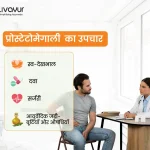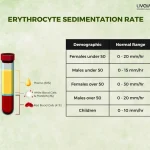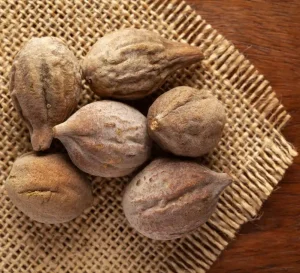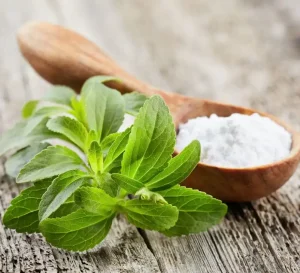
Gastrointestinal bleeding, or gastrointestinal hemorrhage, is a medical condition characterized by bleeding within the digestive tract. This condition can range from mild to quite severe and may occur in various parts of the gastrointestinal (GI) system, including the esophagus, stomach, small intestine, and large intestine. Gastrointestinal bleeding can result in various symptoms, ranging from subtle signs to life-threatening emergencies. [1]
According to Ayurveda, in case of upper gastrointestinal bleeding, it is considered an Urdhwaga Raktapitta or Raktaja Chardi. Amlapitta or Gastritis if neglected may lead to Urdhwaga Raktapitta. However, lower GI bleeding is believed to be under Adhoga Raktapitta, Rakta Atisara, Raktaja Pravahika, and Pittaja Atisara, and treatment methods are followed accordingly. [4]
In this comprehensive write-up, we will explore the gastrointestinal bleeding meaning, its symptoms, causes, diagnostic methods, treatment options, and preventive measures related to Gastrointestinal bleeding.
Symptoms of Gastrointestinal Bleeding
The gastrointestinal bleeding symptoms can vary depending on the location and severity. Some common signs and symptoms include:
Hematemesis:
Hematemesis refers to Chardi or vomiting blood (Rakta pravritti) or material resembling coffee grounds, [1] indicating blood mixed with stomach contents. [2]
Melena: [1]
Stool that appears black and tarry with a strong odor is known as melena. It results from blood digestion in the stomach or upper small intestine. [2]
Hematochezia: [1]
Raktaja Pravahika caused by vitiated Rakta or bright red or maroon blood stained stool is known as hematochezia. It suggests bleeding from the lower gastrointestinal or digestive system, such as the rectum or colon. [2]
Anemia:
Chronic or recurrent gastrointestinal bleeding can lead to iron-deficiency anemia, characterized by fatigue, weakness, and pale skin. [1]
Causes of Gastrointestinal Bleeding
Gastrointestinal bleeding can be caused by multiple factors, ranging from trivial issues to serious medical conditions. Some common causes include:
Peptic Ulcers:
Peptic Ulcers: These are festering sores that develop on the stomach lining or the upper part of the small intestine. One of the reason is due to use of aspirin and other non-steroidal anti-inflammatory drugs (NSAIDs) excessively [1]
Gastritis:
Stomach lining’s inflammation can cause erosions and bleeding. [1] There are also different types of Arshas or piles or hemorrhoids such as Pittaja Arsha or Raktaja Arsha where there is bleeding from the anal route.
Esophageal Varices:
Vein enlargement in the esophagus, often seen in individuals with liver cirrhosis, can rupture and cause severe bleeding. [1]
Diverticulosis:
Small pouches that form in the colon can bleed if they become inflamed or infected. [1]
Colorectal Cancer:
Abnormal colon or rectum growth can lead to bleeding, especially if they become large or cancerous. [1] Raktaja Arbuda or tumor or cancer occurs due to vitiated blood and Achira Rudhira Pravritti is one of the main reasons of upper or lower GI bleeding.
Gastrointestinal Infections:
Infections with Helicobacter pylori can lead to inflammation and bleeding. [1]
Treatment Options
Gastrointestinal bleeding treatment options depend on the underlying cause of the bleeding. Some common approaches include:
Ayurvedic Management:
Haritaki (Terminalia chebula):
Incorporating a daily dose of hartaki helps alleviate blockages. Depending on your dosha, hartaki can be consumed as a powder, combined with sweet sugar, or with ghruta.
Nisoth (Ipomoea turpethum):
In Ayurveda, both the leaves and roots of the nisoth plant are used as a purgative. [3]
Aloe Vera juice:
This helps reduce inflammation, heals ulcers, and destroys viruses, thus hastening the process in case of Gastrointestinal bleeding. [4]
Non-Ayurvedic Management:
Medical Management:
In mild cases of gastrointestinal tract bleeding, medications to reduce stomach acid, antibiotics, or medications such as Anticoagulants and antiplatelet agents to stop bleeding may be prescribed. [2]
Endoscopic Interventions:
Endoscopy can treat bleeding by injecting medications, coagulating blood vessels, or clearing the stomach. [3]
Surgery:
Surgical intervention may be a requirement in severe cases with massive bleeding or hemodynamic instability when other treatments are unsuccessful in controlling Gastrointestinal bleeding. [2]
Blood Transfusion:
Severe bleeding may necessitate blood transfusions to replace lost blood and restore hemoglobin levels. [2]
FAQs
• How can you diagnose gastrointestinal bleeding?
Rockall Score and Glasgow Blatchford Score (GBS): The Rockall score utilizes endoscopic findings, while the GBS (Glasgow-Blatchford Score) relies on the patient’s clinical characteristics, including systolic blood pressure, pulse rate, presence of melena, syncope, hepatic disease, cardiac failure, and laboratory metrics like blood urea nitrogen and hemoglobin levels.
Clinical history, physical examination, and initial laboratory findings: These play a pivotal role in identifying potential sources of Gastrointestinal bleeding. This information guides the selection of appropriate definitive investigations and interventions. A thorough medication history is essential, particularly regarding using medications like aspirin and other non-steroidal anti-inflammatory drugs (NSAIDs).
Other diagnostic measures: Upper endoscopy and colonoscopy are the primary methods for initial examinations. Angiography and radionuclide imaging are most suitable for addressing acute obvious Gastrointestinal bleeding. Capsule endoscopy and deep enteroscopy have significant roles in diagnosing obscure gastrointestinal bleeding, commonly originating from the small intestine. [1]
• How can gastrointestinal bleeding be prevented?
While not all causes of Gastrointestinal bleeding can be prevented, certain steps can help reduce the risk:
Adopting a balanced diet, regular exercise, and avoiding excessive alcohol consumption can improve gastrointestinal health.
Treating peptic ulcers, gastritis, and liver diseases can help prevent bleeding episodes.
Timely screening for colorectal cancer can help detect precancerous polyps or early-stage cancer, reducing the risk of bleeding.
If you are taking medicines that heighten the risk of gastrointestinal bleeding, such as non-steroidal anti-inflammatory drugs (NSAIDs) or blood thinners, consult your healthcare provider for proper management.
• Is it possible to recuperate from gastrointestinal bleeding?
Less severe cases might show relatively swift recovery, whereas extensive bleeding or instances leading to complications could entail a more extended healing process. Individuals facing bleeding triggered by chronic health conditions might need to adopt enduring modifications in diet and lifestyle to mitigate irritation and inflammation within the digestive tract.
Conclusion
Gastrointestinal bleeding is a complex medical condition ranging from mild to life-threatening. Early recognition of symptoms, prompt medical evaluation, and appropriate treatment are essential for managing this condition effectively. By understanding the causes, symptoms, diagnostic methods, treatment options, and preventive measures associated with gastrointestinal bleeding, individuals can adopt a proactive approach to safeguard their digestive health and overall well-being.
Disclaimer:
This article is written from a health and wellness perspective and is not medical advice. Kindly seek the help of a certified medical practitioner before initiating any treatment.
References:
- Diagnosis of gastrointestinal bleeding: A practical guide for clinicians
- Gastrointestinal Bleeding
- Uncovering ayurvedic particulars of gastrointestinal haemorrhage and its therapy
- Gastro Intestinal Bleeding: Prevention and Home Remedies
- Studies on Urdhwaga Amlapitta (Gastritis) and its Management with Shatavari Ghruta
- STUDY ON RAKTAPITTA W.S.R TO HAEMATEMESIS






















